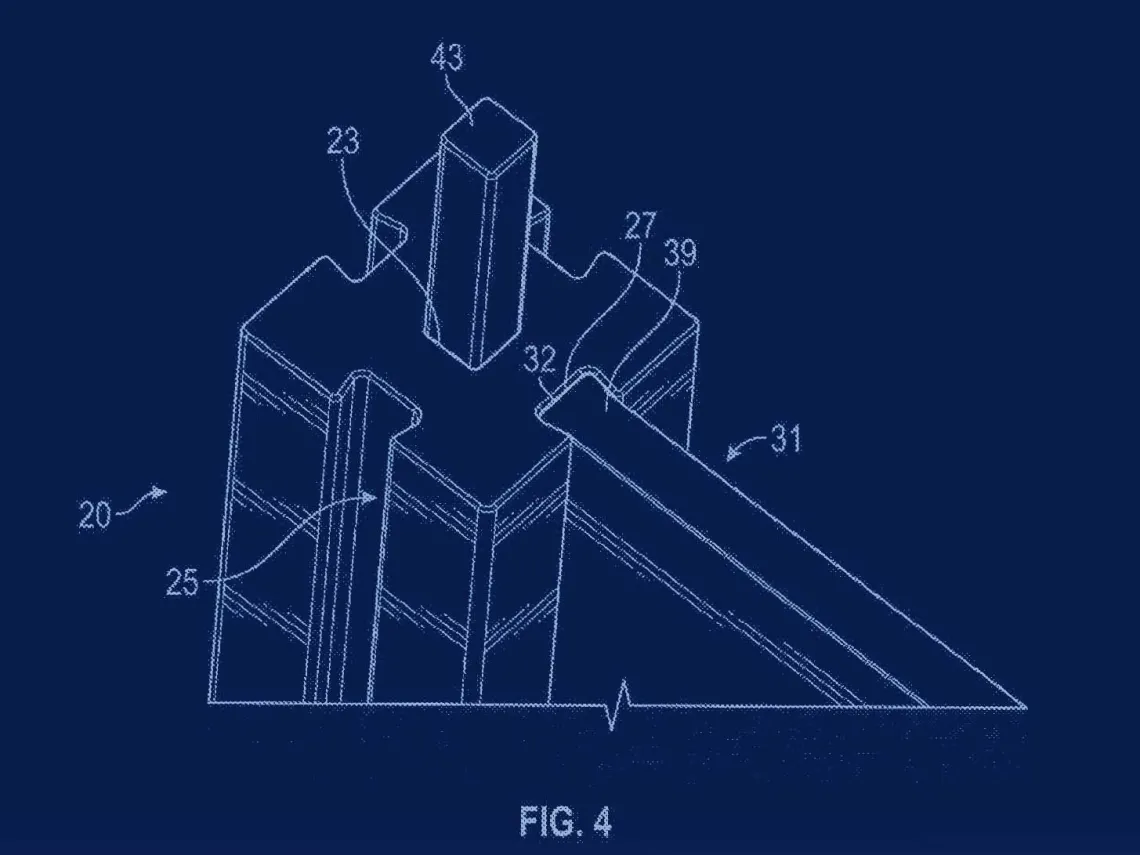First Three Patents Issued to Clients of University of Arizona Law’s Intellectual Property Clinic

A figure from patent no. 9,993,074, for a do-it-yourself modular kit produced by Modular Home & Garden, which worked with the Intellectual Property Clinic to patent its product.
The Intellectual Property (IP) Clinic at the University of Arizona James E. Rogers College of Law has secured its first three client patents from the United States Patent and Trademark Office (USPTO). An additional 10 client patents are in the pipeline.
Under the guidance of clinic director Allan Sternstein and other supervising attorneys, JD students in the IP Clinic counsel individuals, startup and ongoing businesses on securing, maintaining, protecting and enforcing their intellectual property rights, including rights in patents, trade secrets, trademarks and copyrights. Services are provided at no charge.
The first three patents issued to clinic clients are:
-
Patent No. 9,993,074, for a do-it-yourself modular kit for storage, garden and entertainment structures, produced by the company Modular Home & Garden
-
Patent No. 10,180,016, for a product called the Delivery Safe, a safety bag that attaches to the user’s front door, in which delivered packages can be placed and locked, preventing the packages from theft, loss, and inclement weather.
-
Patent No. 10,238,729, for a groundbreaking vaccine and medical procedure for treating certain forms of skin cancer. The vaccine and process are in clinical trials, and additional patent applications are pending for expanded use of the treatment.
Working on a patent case is a long-term assignment for IP Clinic students. For the Delivery Safe, students began their review of the client’s invention in February 2017, filed the patent application in January 2018 and finally saw the patent issued in January 2019.
Student work on any given case may include (under attorney supervision) reviewing the invention; performing patentability searches on the original invention and improvements; preparing, revising and filing the patent application; responding to office actions from the USPTO; interviewing with the patent examiner; and providing overall strategy.
The IP clinic is also a participant in the USPTO’s Law School Certification Program, which allows qualified students to practice directly before the USPTO in their own name.
“The IP Clinic has been by far the most rewarding experience I have had while in law school,” says Arizona Law 2L Alexandra DeArman, who worked on the Modular Home and Garden patent. “Prior to joining the clinic, my knowledge of intellectual property was limited. But through working one-on-one with clients, fellow students and our incredible advising attorneys, I have been able to grow my skill set in ways not possible through lecture alone.”
DeArman says the hands-on work in the IP Clinic helped her feel more prepared for practice. She found it satisfying to be entrusted with the ability to personally work with the USPTO.
“Getting a patent issued is a big team effort and very time consuming, so seeing one issued is a great achievement and motivator for the entire clinic,” DeArman says.
Blake Osecki is the founder and president of Modular Home & Garden, LLC and says the professionalism and insight from the IP Clinic students made his utility patent and two trademark applications run as smoothly as he could have imagined.
“It was a pleasure working with the clinic and especially the students,” Osecki says. “I enjoyed coming to campus to meet everyone who was working on my project in person. This made a big difference to me, bringing 3D printed parts to physically show the invention to students and staff and highlighting what I wanted to protect and why.”
In addition to its own client work, the IP Clinic is also the designated USPTO Pro Bono Program hub for the State of Arizona. Through its Arizona Public Patent Program, the clinic connects under-resourced inventors and businesses with pro bono patent attorneys.
